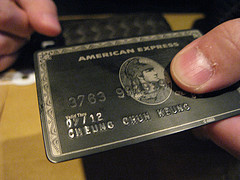This post is the final part of a four-part series on credit card reform.
In the three previous posts, I discussed the possible affect of the credit card reform bill that was passed by the US Senate earlier this month. The bottom line for consumers and small businesses is that this new legislation will probably not have the desired affect its supporters had hoped for, and it may even lead to some negative consequences, such as smaller credit limits, higher fees, and less credit availability.
In response, many consumers and small businesses in search of credit will turn to credit card alternatives. Some will make this switch by choice, while others will do so because they have no choice.
Whichever category you or your small business falls into, you might as well familiarize yourself with some of the more popular credit card replacement options:
Credit Unions
Credit unions are basically small banks that are cooperatively owned by their members and run by the community at large. These local banks are generally more personable and they have the added benefit of limited interest charges as well as a vested interest in supporting the local community. They are a good place to turn for small business loans as well as personal lines of credit.
(Image credit)
Debit Cards.
Debit cards work just like credit cards and are accepted everywhere that credit cards are accepted. The only difference is that the money that you spend is immediately deducted from your bank account. Keep in mind, however, that if your card is lost or stolen, you risk losing the balance of money in your account.
Prepaid Credit Cards.
Like debit cards, prepaid credit cards work just like credit cards and are accepted everywhere that credit cards are accepted, but you have to put money into the card before you can use it. The major benefits to this method include more control over how much money is being spent and greater safety should the card be lost or stolen. The major drawback is that many prepaid cards charge a monthly fee in addition to a fee on transactions.
Bank Overdrafts.
A bank overdraft is a line of credit, much like a credit card, except it is directly connected to your bank account. A bank overdraft allows the account holder to overdraw the account up until a predetermined limit that is set by the bank. The outstanding balance may then be carried over from month to month, but it will accrue interest charges.
Charge Cards.
Charge cards work just like credit cards except the monthly balance made be paid in full each month. Unlike credit cards, charge cards do not have a monthly spending limit, and you can make an unlimited number of purchases. Many charge cards come with a yearly fee, and impose hefty penalties when the balance is not fully paid.
(Image credit)


